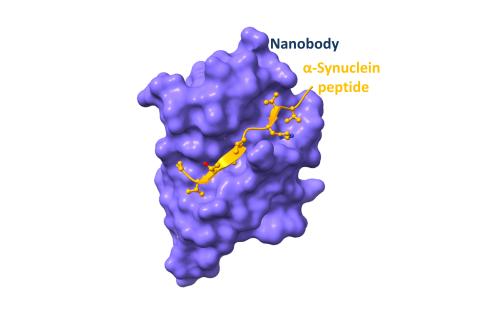News
Research Reveals Strategy for Combating Synuclein Aggregation in Neurological Disorders
20 Mar 2024Engineered nanobodies raise prospect of doctors spotting and treating diseases at an early stage

Researchers at the Qatar Biomedical Research Institute’s (QBRI) Diabetes Research Center (DRC) have unveiled a promising way to fight against synuclein aggregation, a key process in neurodegenerative diseases like Parkinson's. Leveraging the capabilities of the structural biology laboratory, their findings offer potential avenues for therapeutic intervention.
Led by Dr. Prasanna Kolatkar, Senior Scientist, the team focused on understanding how nanobodies recognize synuclein aggregation at an atomic resolution, which is crucial for finding ways to stop them. Nanobodies are like tiny pieces of antibodies, which are proteins that help our immune system fight off invaders. They are being employed more frequently because of their smaller size, making them more robust and allowing better penetration of samples, leading to improved detection of targets. Additionally, they can be grown in camels, which are readily available in Qatar.
The researchers looked closely at a specific nanobody, called Nbα-syn01, and how it attaches to the critical part of synuclein involved in the aggregation. They found that Nbα-syn01 sticks to synuclein through a specific interaction, mostly through certain parts of their structures fitting together. Next they engineered the nanobody to make it even better at sticking to synuclein and stopping it from aggregating. The smaller, improved version sticks better to the synuclein and also is better at preventing the aggregation.
This discovery is not just interesting scientifically—it could also be a game-changer for diagnosing and treating diseases related to synuclein aggregation. By using these engineered nanobodies, doctors might be able to spot these diseases early on, and even stop them from getting worse.
Dr. Kolatkar's research is a step forward in fighting synuclein aggregation. By using several biophysical techniques and tinkering with nanobodies, they've opened up exciting new possibilities for treating brain diseases. You can read more about their work in the journal Protein Science.
